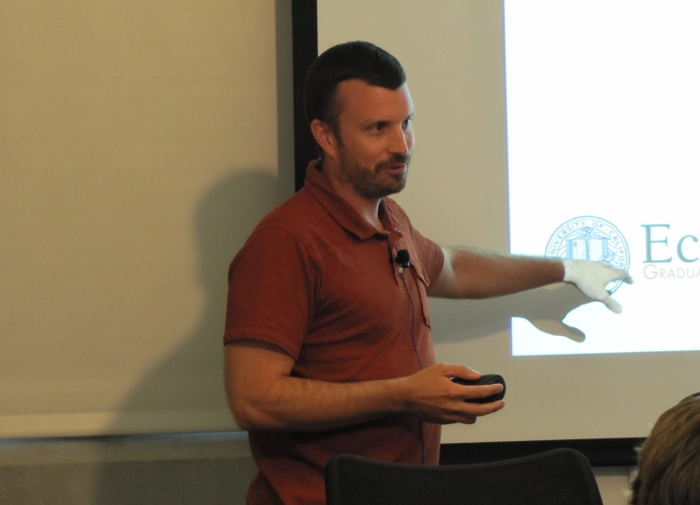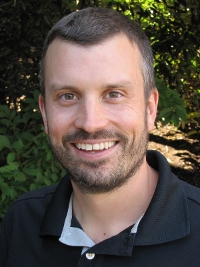NIMBioS Seminar Series
In conjunction with the interdisciplinary activities of the National Institute for Mathematical and Biological Synthesis (NIMBioS), a seminar series on topics in mathematical biology will be hosted at NIMBioS every other Tuesday at 3:30 p.m. (unless otherwise noted) in Room 105, Claxton Building, 1122 Volunteer Blvd. Seminar speakers will focus on their research initiatives at the interface of mathematics and many areas of the life sciences. Light refreshments will be served in the 1st floor visitor breakroom beginning 30 minutes before each talk. Faculty and students from across the UT community are welcome to join us.
Time/Date: Tuesday, October 8, 2013, 3:30 p.m.*
Location:
Room 105, Claxton Building, 1122 Volunteer Blvd.
Speaker:
Dr. Matthew Zefferman, NIMBioS postdoctoral fellow
Topic:
Cultural evolution of human cooperation and conflict
Abstract:
Humans seemingly have a greater capacity for altruistic cooperation with non-relatives than any other species. For example, in experiments humans cooperate more than one would expect either from cross-species comparisons or by calculating payoff-maximizing behavior. Two main hypotheses have sought to explain this - the mismatch hypothesis, where humans evolved genetically-inherited rules for cooperation in small kin groups and misapply them in modern contexts, and the norm psychology hypothesis, where humans evolved the capacity for to learn cooperative norms. I show that a model developed to support the former hypothesis actually better supports the latter. Similarly, in warfare humans take large risks to benefit group members who are mostly non-relatives. Quite a few hypotheses have been proposed to explain this, however these hypotheses are fundamentally incomplete when they do not account for both cultural inheritance and group-structure. Finally, explaining cooperation in larger-scale complex human societies has been difficult since many of the institutions that work in small-scale societies become less effect ive as group size increases. Hierarchical organization seems a potential solution to increasing group size, though the basic theory has not been established. I present a preliminary model of hierarchy's origins that I will develop as a NIMBioS post-doc.
*Join us for refreshments at 3 p.m. in the 1st floor visitor breakroom.
Seminar Flyer (pdf)
For more information about this and other NIMBioS Seminars, visit /seminars.

NIMBioS
1122 Volunteer Blvd., Suite 106
University of Tennessee
Knoxville,
TN 37996-3410
PH: (865) 974-9334
FAX: (865) 974-9461
Contact NIMBioS



